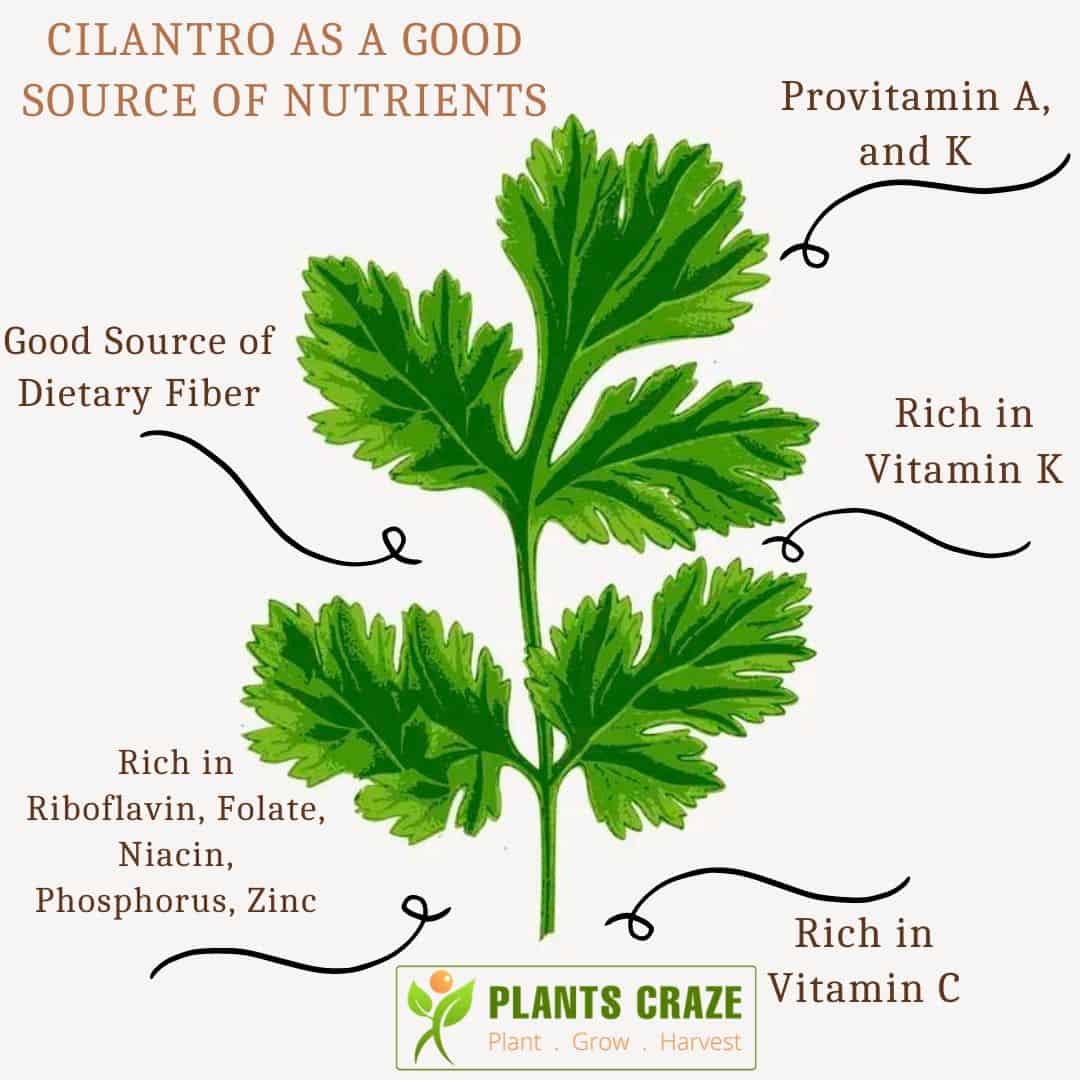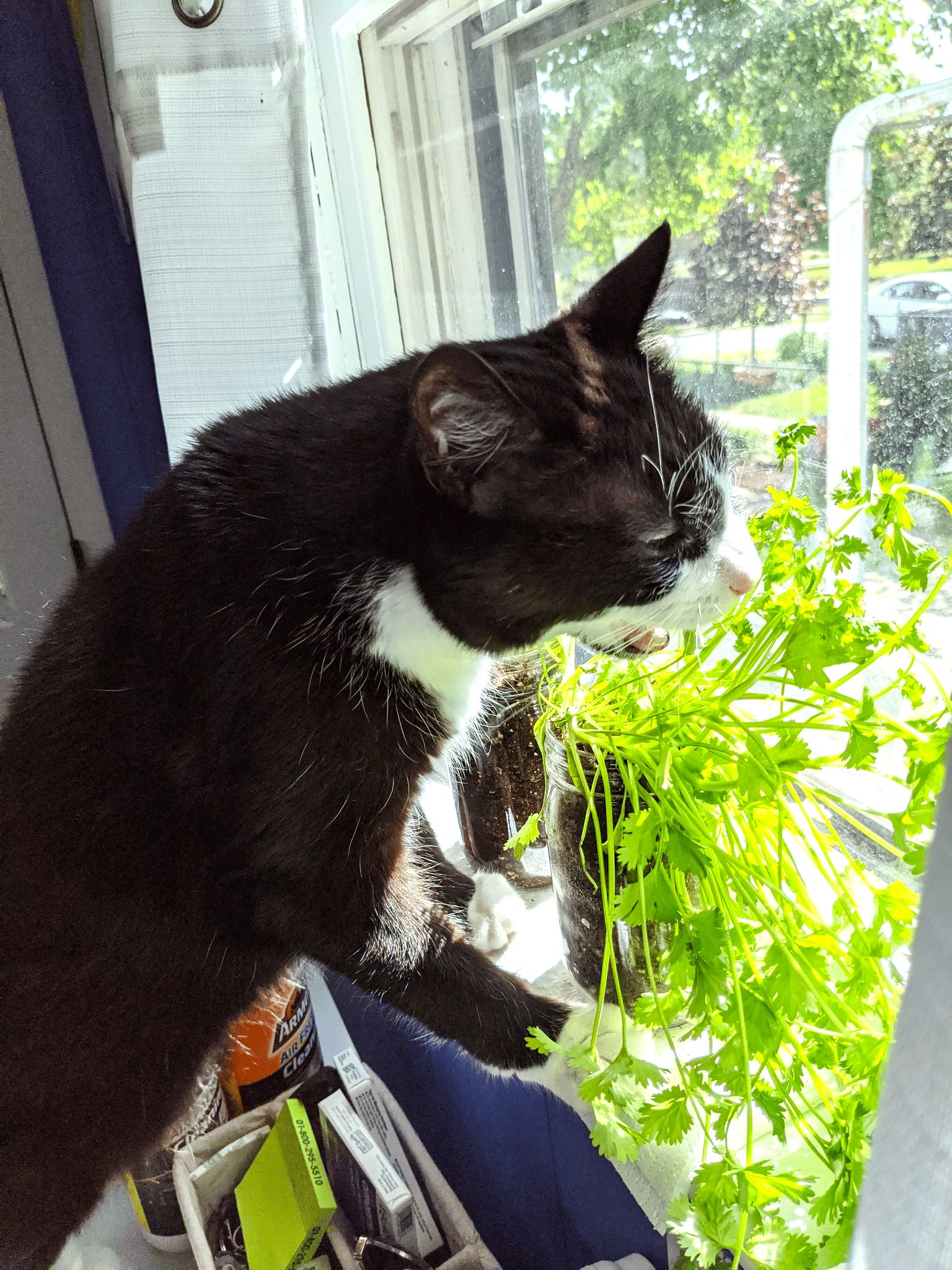As Cilantro pose so many benefits to humans, it is understandable to wonder if they are good for our furry cats.
Thus, read on to understand the dynamics of beneficial Cilantro on cats so your felines stay safe without any stomach upset.
Table of Contents Show
Is Cilantro Toxic to Pets?
Cilantro, commonly known as Coriander, Dhania and Chinese Parsley, is a herb that is profusely used to season various dishes.
Besides Cilantros’ wide range of culinary usages, they are pet-friendly and safe to have around pets.
Cilantro is rich in various minerals, vitamins, proteins and fats. So if pets enjoy eating Cilantro, you can add them to their meal.

You can let your dogs have small nibbles of fresh or dried Cilantro leaves but not the stems.
Likewise, Cilantro seeds help horses with digestion. So, you can use Coriander as a dietary supplement.
However, it would be best not to force-feed your pets with Coriander as they are not cats’ natural diet.
Is Cilantro Bad For Cats?
Cats are obligate carnivores meaning they rely solely on meat for survival and rarely eat grass to aid their digestive tract.
So, despite Cilantro being non-toxic and safe for pets, it still can cause minor discomfort in cats when eaten a lot.
Additionally, their digestive system is not accustomed to digesting plants. And issues in digestion can cause obesity in cats.
Thus, abstain from adding Cilantro to your cats’ diet if they do not seem to like having them.
Remember, all greens that are nutritious and beneficial to you are not necessarily good for your cats.

However, it is a different story if your cat enjoys Coriander’s lemony, tart-like taste and texture.
Likewise, a study shows domestic cats eat grass as regurgitation helps them to control intestinal parasites.
Therefore, the bottom line is if your cats like Cilantro, it is good else bad.
What to do if Cats Consume Cilantro?
If your cat is allergic and does not like Cilantro or Coriander, eating even a smaller amount can cause discomfort.
Therefore, try introducing a small amount of Cilantro to your cat for the first time. Then sit back and look for any signs of abnormal reactions.
Some of the allergic reactions that might appear in cats include:
- Diarrhea
- Dry heaving
- Red bumps on the skin
- Skin irritation or itching
- Vomiting
- Frequent abnormal sneezing
- Difficulty breathing
Remember, cats eating a lot of Cilantro can develop arrhythmia, albeit only 1%, causing abnormal heartbeat rates.
Thus, if you notice any abnormal signs in your cats, immediately call the personal vet or the poison helpline at (855) 764-7661.
Editor’s Note
Treasure of Nutritions: Cilantro!
Cilantro is highly beneficial to humans as it is enriched with dietary fibers, minerals like iron, calcium and vitamins like A, C, E, and K.
However, cats do not enjoy the benefits as much as we do from Cilantro. Nonetheless, occasional Cilantro treats can be a nutritious supplement for your cat.
All The Best!


